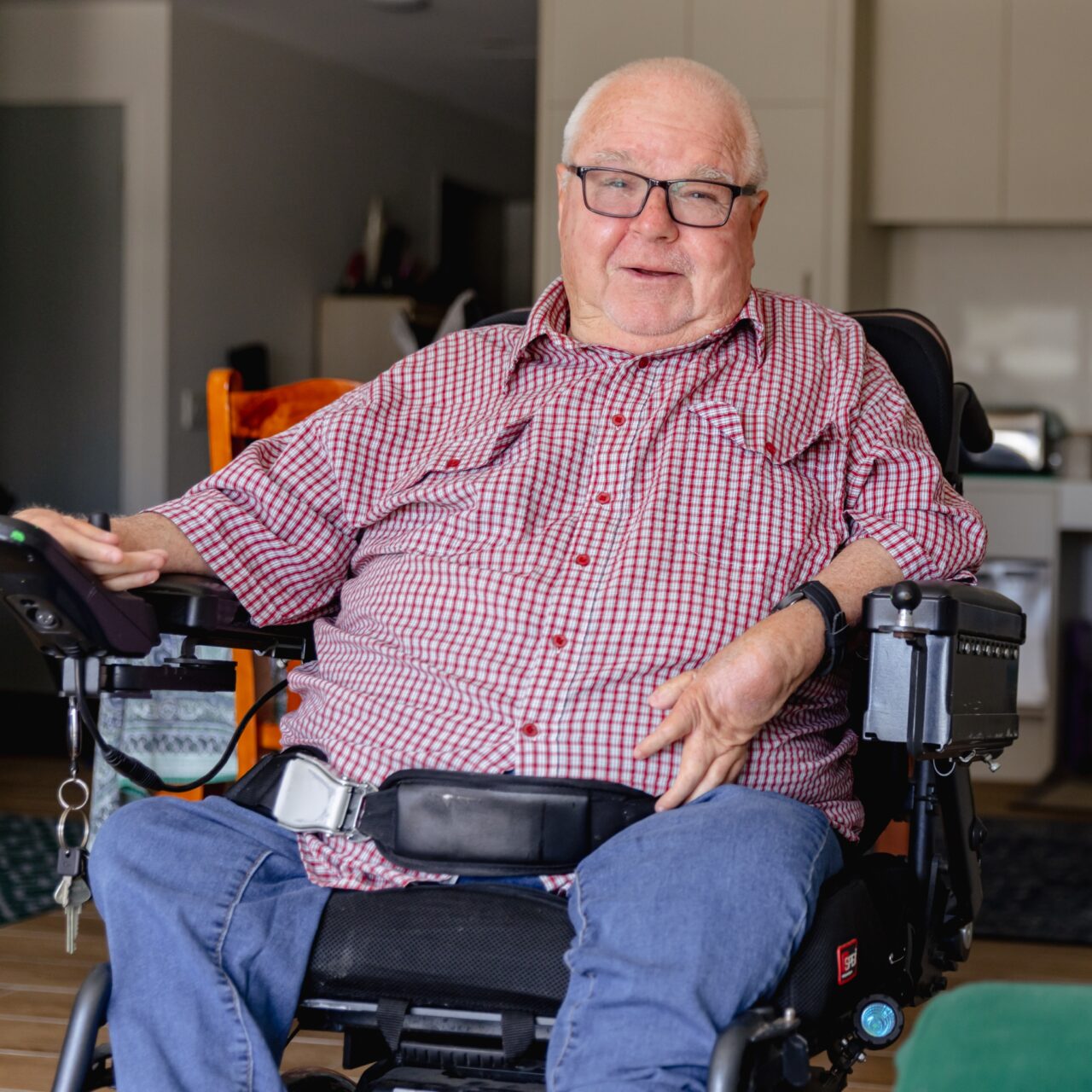Your intro roadmap to working with a support at home provider for disability support
Your intro roadmap to working with a support at home provider for disability support
Blog Article
The Value of Special Needs Solutions and the Effect of Home Care Providers
Disability solutions are necessary for improving the lives of individuals with impairments. They offer crucial assistance that promotes independence and well-being. Home treatment suppliers play an essential role in this structure by providing customized assistance customized to distinct needs. This assistance not only advantages people however also eases the pressure on family caretakers. Comprehending these dynamics exposes a much deeper connection in between autonomy, treatment, and neighborhood. What lies in advance for these critical services and their impact?
Understanding Disability Services
While lots of may not totally realize the complexities of disability solutions, they play an important duty in improving the high quality of life for people with specials needs. These services encompass a vast variety of support group designed to aid individuals in steering daily difficulties. From providing access to education and learning and job opportunity to assisting in healthcare and rehab, disability solutions intend to promote independence and inclusion.Key components include case management, advocacy, and assistive innovation, which aid people accomplish individual objectives. In addition, community-based programs typically foster social connections, lowering sensations of seclusion. Different organizations and federal government entities work together to guarantee that people get customized support according to their unique requirements. Comprehending these services is essential, as they encourage people with impairments to lead meeting lives, proactively participate in their neighborhoods, and realize their possibility. Eventually, reliable disability solutions are fundamental to advertising equity and accessibility for all.

The Role of Home Treatment Providers
Home treatment companies play an important role in supplying customized assistance to individuals with disabilities, allowing them to preserve self-reliance in their very own homes - ndis providers. These experts offer a wide variety of solutions customized to meet the one-of-a-kind demands of each individual, guaranteeing that support is both reliable and relevant. They aid with day-to-day activities such as meal preparation, individual hygiene, and medication administration, which are crucial for improving the top quality of life for those they serve.Moreover, home care companies act as a critical web link in between people and their healthcare needs, helping with interaction with doctor and collaborating needed services. Their existence also minimizes the concern on family caregivers, promoting a much healthier vibrant within households. By cultivating a helpful and risk-free environment, home treatment service providers encourage individuals with specials needs to involve with their communities, seek personal passions, and eventually lead meeting lives while staying in the convenience of their homes
Personalized Treatment and Support
Personalized treatment and support are crucial elements of efficient home treatment services, as they accommodate the individual requirements and preferences of everyone with a disability. Home treatment providers examine the unique needs of each customer, developing tailored plans that prioritize their convenience, health, and health and wellness. This customized method not only boosts the top quality of treatment but likewise fosters a sense of dignity and respect.Caregivers are educated to adjust their approaches, making sure that solutions straighten with the client's lifestyle, social background, and individual choices. Normal interaction between caregivers and clients assists to fine-tune care strategies, attending to any changing demands immediately. Furthermore, the focus on personalized assistance encourages the development of trust and connection, which can considerably improve the overall caregiving experience. Eventually, customized care and support encourage individuals with disabilities to receive the aid they require in a manner that feels respectful and attesting.
Enhancing Independence for Individuals
Enhancing self-reliance for people with specials needs is an essential objective within home treatment solutions. These services use tailored support that equips customers to take part in daily activities autonomously (ndis providers). By offering support with personal treatment, movement, and house tasks, home care carriers make it possible for people to preserve a sense of control over their lives. This autonomy fosters self-worth and resilience, crucial elements in the trip toward independence.Furthermore, home treatment solutions typically consist of skill-building chances that teach individuals adaptive strategies, improving their capability to carry out tasks independently. This support not just fulfills instant needs however additionally advertises long-lasting self-sufficiency. Furthermore, caretakers can assist in creating a setting that suits private preferences and capacities, guaranteeing that customers really feel comfy and safe. On the whole, the emphasis on improving independence through home treatment services is substantial in advertising dignity and quality of life for people with handicaps
Building Area Inclusivity
While cultivating private freedom is necessary, constructing neighborhood inclusivity for people with impairments is just as important. Inclusivity enhances social connections, allowing individuals to get involved fully in area life. Community involvement initiatives, such as understanding projects and inclusive occasions, play a significant role in damaging down barriers and difficult misunderstandings concerning disabilities.Accessible public rooms and transportation alternatives are key elements that help with involvement and integration. Collaboration amongst regional organizations, organizations, and advocacy groups can create supportive networks that urge inclusivity. Additionally, training community participants on special needs awareness cultivates compassion and promotes a society of acceptance.Ultimately, a comprehensive area not only benefits people with specials needs however enriches the whole social fabric by accepting diversity. By understanding and addressing the unique needs of individuals with impairments, communities can grow an atmosphere where everyone has the chance to prosper and add meaningfully.
The Effect on Caregivers and households
Several family members and caretakers of individuals with impairments experience a profound influence on their daily lives and emotional well-being. The responsibilities related to caregiving can cause considerable physical and emotional stress, often leading to caregiver fatigue. This can lessen their capacity to provide effective support and develop a caring environment. Additionally, the psychological toll can result in sensations of seclusion and stress and anxiety, influencing family members dynamics and relationships.Access to impairment services and home treatment companies can alleviate some of these burdens by offering required assistance and resources. These solutions enable family members to share caregiving responsibilities, allowing caregivers to take breaks and concentrate by themselves health. Improved support networks promote a feeling of community, which can boost emotional resilience. Eventually, the presence of extensive handicap solutions especially impacts families, advertising better health and wellness end results and improving the lifestyle for both caregivers and people with disabilities.
Future Trends in Special Needs Providers and Home Care
As the landscape of disability services and home care evolves, innovation assimilation is ending up being increasingly noticeable. This change permits even more customized assistance models that provide to individual demands and preferences. By utilizing cutting-edge devices, carriers can boost treatment high quality and boost outcomes for those they offer.
Modern Technology Integration in Treatment
The assimilation of modern technology in impairment services and home care is transforming the means treatment is provided and experienced. Advanced tools such as telehealth systems, wearable devices, and clever home systems improve ease of access and communication in between customers and caregivers. These innovations facilitate real-time tracking of wellness metrics, permitting timely treatments and individualized care adjustments. In addition, mobile applications encourage individuals with handicaps to handle their very own care strategies and gain access to resources much more successfully. Automation and expert system are streamlining management tasks, freeing up caregivers to concentrate on giving quality support. As modern technology remains to evolve, its assimilation within these fields promises to enhance results, boost independence for customers, and maximize resource appropriation for companies.
Customized Support Versions
While conventional care versions description usually take on a one-size-fits-all method, the future of handicap services and home treatment is significantly leaning in the direction of customized support models that provide to the unique demands of each individual. These designs highlight cooperation between treatment carriers, clients, and their households, ensuring that solutions straighten with certain obstacles and personal choices. By leveraging evaluations and feedback, carriers can customize interventions, whether they involve daily living aid, therapeutic activities, or psychological assistance. This personalized technique not only improves the top quality of care however also promotes better independence and well-being among individuals with handicaps. As awareness of these benefits expands, customized assistance models are poised to end up being the criterion in special needs solutions and home treatment, transforming the landscape of treatment shipment.
Regularly Asked Inquiries
What Credentials Do Home Treatment Providers Typically Need?
Home treatment providers usually call for a senior high school diploma or equivalent, completion of a state-approved training program, accreditation in CPR and emergency treatment, and usually a background check to assure security and trustworthiness for customers.

How Are Special Needs Solutions Funded and Accessed?
Disability solutions are generally funded through government programs, private insurance policy, and gives. Accessing click here to read these services typically involves assessments, eligibility criteria, and applications, which differ by location and certain needs of individuals seeking support.
Can Home Treatment Services Be Personalized for Details Disabilities?
Home care solutions can without a doubt be personalized to meet the one-of-a-kind needs of individuals with particular specials needs. This modification permits for customized support, boosting the top quality of treatment and improving the overall wellness of customers.
What Are Usual Difficulties Dealt With by Home Care Providers?
Common challenges faced by home treatment suppliers include staffing shortages, insufficient training, communication barriers with clients and family members, varying levels of client demands, handling insurance intricacies, and making sure constant quality of care throughout various environments.
How Can Families Locate Trusted Disability Services in Their Area?
Households can locate trusted handicap solutions by researching local companies, seeking advice from on the internet directories, looking for suggestions from health care experts, and getting in touch with assistance groups. Complete analyses and interviews with provider help guarantee top quality and compatibility with demands. Personalized treatment and assistance are vital components of reliable home treatment services, as they cater to go to the website the individual needs and choices of each person with a handicap. By providing assistance with individual care, movement, and house tasks, home treatment companies allow people to keep a sense of control over their lives. The integration of innovation in handicap services and home care is reinventing the means care is delivered and experienced. While conventional care designs commonly take on a one-size-fits-all strategy, the future of disability services and home treatment is significantly leaning in the direction of individualized support versions that provide to the special requirements of each individual. Home treatment services can certainly be customized to satisfy the one-of-a-kind demands of individuals with particular impairments.
Report this page